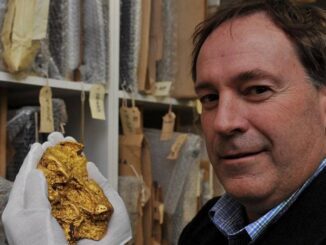Elon Musk, the visionary mogul behind revolutionary companies like Tesla and SpaceX, has not only been a leader in technological innovation but also a controversial figure in his personal life. Recently, it was revealed that Musk has expanded his family to 11 children, sparking widespread debate about the relationship between birth rates, global demographics, and future economic challenges.

Elon Musk and His Concerns About Underpopulation
In various statements, Musk has expressed concern about the declining birth rates in numerous countries. For him, population decline represents a significant threat to the future of civilization. In a viral tweet, he stated: “Demographic collapse is the greatest danger facing humanity.” In this context, the entrepreneur maintains that population growth is essential to avoid an economic and social imbalance that could affect global development.

Musk has also issued a call to action, encouraging people to have more children and asserting that he himself is “doing his part” with the arrival of his eleventh child. His stance has sparked both admiration and criticism, rekindling debate about the impact of underpopulation and viable solutions to address it.
Demographic Decline: A Global Problem
Over the past few decades, many countries, especially in Europe and Asia, have experienced a drastic decline in their birth rates. This phenomenon worries economists and politicians due to its long-term implications. Among the main factors that have contributed to this trend are:
The rising cost of living: Raising children in a modern society entails significant expenses for education, healthcare, and housing.
The entry of women into the workforce: Many women are prioritizing their professional careers and delaying or reducing childbearing.
Changing cultural values: The perception of family and parenthood has evolved, placing greater importance on personal autonomy and financial stability.
Environmental and climate factors: Some couples choose not to have children due to concerns about climate change and the sustainability of the planet.
Faced with this situation, various countries have implemented strategies to encourage births, such as tax incentives, childcare subsidies, and parenting support programs. However, the decline continues to be a latent concern.

Elon Musk and His Personal Action in the Face of the Demographic Crisis
Unlike many business and political leaders who only approach the problem from a theoretical perspective, Musk has taken a personal approach. With 11 children, the billionaire is putting his philosophy of increasing the world’s population into practice.
His decision has been seen by some as a way to set an example and demonstrate that parenthood is not incompatible with professional success. For others, his approach may seem simplistic, as the solution to the demographic problem depends not only on the number of children an individual has, but on policies and structural conditions that allow families to thrive.
Criticism and Controversy Surrounding Musk’s Position
Not everyone agrees with Musk’s views on birth rates. Some experts argue that the problem isn’t solved simply by incentivizing people to have more children, but by creating a more conducive environment for raising children.
Among the most common criticisms of the entrepreneur’s position are:
Economic inequality: Not everyone has Musk’s financial resources to raise a large family without difficulties.
Environmental impact: An increase in population could also mean greater pressure on the planet’s natural resources.
Lack of structural policies: Increasing the birth rate without ensuring well-being for families could be counterproductive.
Despite these criticisms, Musk remains firm in his position and defends the idea that underpopulation is a greater risk than overpopulation.
The Role of Technology in Solving the Demographic Problem
As a pioneer in the field of technology, Musk has also suggested that innovation could play a key role in solving the demographic crisis. Some of his ideas include:
Advances in artificial intelligence and automation: AI could offset the shrinking workforce in countries with low population growth.
Space exploration and colonization of other planets: Musk has raised the possibility of humanity expanding its presence beyond Earth, which could alleviate population pressure.
Use of renewable energy and sustainable technologies: To ensure that population growth does not negatively impact the environment.
Conclusion: An Open Debate on the Future of Humanity
Elon


